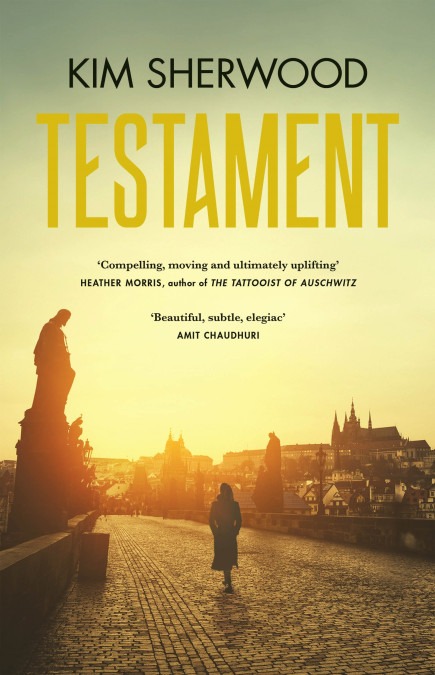
This article is a preview from the Spring 2019 edition of New Humanist
Testament (Riverrun) by Kim Sherwood
Eva is mourning the loss of her grandfather, Joseph Silk, a famous painter. After his death she discovers the past he had concealed from her. Silk was once József Zyyad, a Hungarian Jew, who survived the Holocaust with his younger brother László. He dislikes talking about this period but a testament comes to light just before his death. It documents his journey and bears witness to the atrocities committed against József, László and thousands of others.
In overlapping narratives, József and László’s stories are related alongside Eva’s quest to understand her grandfather’s reticence. The brothers endure different horrors. As a child, László witnesses unspeakable brutality. His adult life is forged from and driven by his memories. József’s suffering is just as horrific but, whereas László elects to talk about his experiences, eventually moving to Israel, József changes his name and tries to obliterate his demons. Silk gains some respite, through sexual encounters with beautiful women, but professes to have only truly loved his late wife Rosemary. He studiously avoids discussion of the war. Everything Eva knows about his life begins in London in 1945. “What’s a man without memory?” László asks him. “Happier,” Silk responds.
Eva’s estranged father, John, lives in France and has always resented Silk and his philandering. It is left to Eva to unravel József and László’s tangled past. Along the way, Eva finds herself beset by earnest art curators and historians keen to preserve Silk’s art and even his work space. We learn how József’s forced labour service takes him to the brink of the abyss, how he endures a death march from Serbia to Austria and narrowly escapes the death camps. Returning to Hungary, he discovers that, except for his younger brother, his family has perished and their home has been given away. The brothers’ survival earns them safe passage to England as refugees, where József becomes a renowned artist. However, the trauma never leaves him.
Eva travels from London to Berlin, and then to Budapest. She is torn between honouring her grandfather’s request to conceal the past – by destroying his testament – and siding with those who believe it should be preserved as a powerful indictment of the treatment of Hungarian Jews. She can protect Silk’s privacy or share his memories in the hope that the horrors he endured are not forgotten. It dawns on Eva that empathy often skips a generation. She looks to her father for “a mirror of my own regret, my loss, my anger, this confusion. He turned his back on me.”
Kim Sherwood’s own background inspired Testament – her grandmother was a Hungarian Holocaust survivor, while her late grandfather was the Bulgarian-born actor George Baker – and it is impeccably researched. Sherwood explores memory, identity, survivor’s guilt and loss with tremendous acuity. Her skilful interweaving of fact and fiction is impressive and various plot twists keep us guessing until the final pages.
Love, in its various forms, is threaded through the novel as a redemptive force. József may have wanted to forget the inhumanity he suffered but Eva acknowledges the importance of remembering where nationalism and hatred can lead: “History doesn’t happen in the past tense . . . The pain you felt hurts me now.” The (real) postwar pamphlet József finds about the integration of refugees in England recommends: “DO be as quiet and modest as possible. If you do not make yourself noticeable, other people will not bother about you.”
No wonder József tried to deny his trauma and erase his past. This well-meaning, but condescending, advice resonates today. Without empathy, we will continue to misrepresent refugees, close doors and prolong their suffering. In Eva’s words, “There is no vigil . . . in silence.”
Countless novels depict the horrors of the Holocaust and yet Sherwood’s treatment feels original. Given the rise of the far right in Hungary, it is particularly timely.

